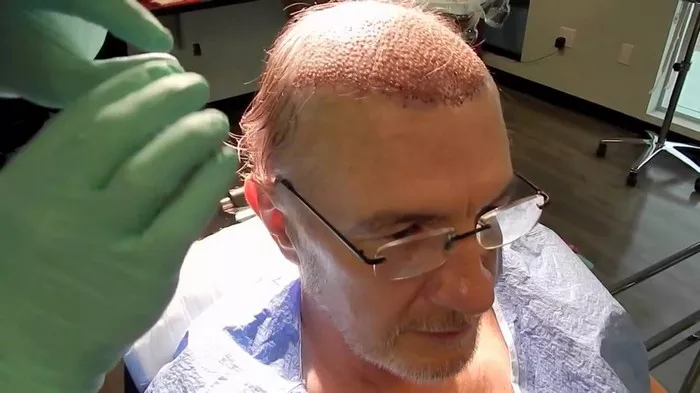For men experiencing hair loss, hair transplants have emerged as a popular and effective solution. However, understanding the longevity of the results is crucial when considering this procedure. In this article, we will delve into the factors that determine how long men’s hair transplants last, shedding light on the longevity of this sought-after solution.
The Initial Phase: Understanding Hair Transplants
Before we delve into the longevity of hair transplants, it’s essential to grasp the basics of the procedure:
1. Follicular Unit Transplant (FUT) and Follicular Unit Extraction (FUE): These are the two primary methods used in hair transplants. FUT involves removing a strip of hair-bearing scalp, while FUE involves individual hair follicle extraction. Understanding the method used is the first step in assessing longevity.
2. Natural Hair Growth: During a hair transplant, hair follicles from the patient’s own head are transplanted to areas with thinning or balding hair. These transplanted hairs behave like natural hair, growing and shedding in the same manner.
Initial Growth and Shedding
Following a hair transplant, it’s common for the newly transplanted hair to go through an initial growth phase, followed by temporary shedding. Here’s what you need to know:
1. Initial Growth: Within a few months post-surgery, you’ll notice the transplanted hair starting to grow. This growth may vary from person to person.
2. Temporary Shedding: Don’t be alarmed if the newly transplanted hair sheds after a few weeks. This is entirely normal and is part of the natural hair growth cycle.
Longevity Factors of Hair Transplants
Several factors influence how long the results of a men’s hair transplant will last. Understanding these factors is crucial for managing expectations:
1. Genetics: Your genetic predisposition to hair loss plays a significant role. If you have a family history of severe hair loss, your transplanted hair may eventually thin.
2. Age: The age at which you undergo a hair transplant can affect longevity. Those who opt for the procedure at a younger age may need further maintenance due to ongoing hair loss.
3. Post-Transplant Care: Proper aftercare, including medications and lifestyle choices, can impact the durability of the transplant.
The Lifespan of a Hair Transplant
The longevity of men’s hair transplants varies from person to person, but here’s a general guideline:
1. Initial Growth: Most individuals experience noticeable hair growth within the first few months post-transplant. The transplanted hair should last indefinitely, continuing to grow like natural hair.
2. Managing Thinning: Depending on genetic factors and individual circumstances, some may notice thinning in the transplanted area after several years. This can be managed through further transplants or medical treatments.
Maintenance and Enhancement
To extend the longevity of your hair transplant and address any thinning that may occur over time, there are several options to consider:
1. Medical Treatments: Medications such as minoxidil and finasteride can help maintain and even enhance the results of a hair transplant.
2. Additional Transplants: If needed, you can opt for additional hair transplant procedures to address thinning or further hair loss.
3. Lifestyle Choices: A healthy lifestyle, including a balanced diet and stress management, can contribute to the longevity of your hair transplant.
Consultation and Expert Advice
Ultimately, the lifespan of a men’s hair transplant depends on various factors, making it essential to seek professional advice. Here are some recommendations:
1. Consultation: Consult with a board-certified hair transplant specialist to evaluate your unique situation and set realistic expectations.
2. Post-Transplant Care: Follow the aftercare instructions provided by your surgeon diligently.
3. Regular Check-Ups: Regular follow-up appointments with your surgeon can help monitor your progress and address any concerns.
See Also: [Reveal!] The Cost of a Hair Transplant for Receding Hairline
In conclusion
The longevity of men’s hair transplants is influenced by a combination of factors, including genetics, age, and post-transplant care. While transplanted hair typically lasts indefinitely, it’s essential to be prepared for potential thinning or further hair loss as the years go by. With proper care, maintenance, and consultation with a professional, you can enjoy the benefits of your hair transplant for years to come, regaining your confidence and youthful appearance.


